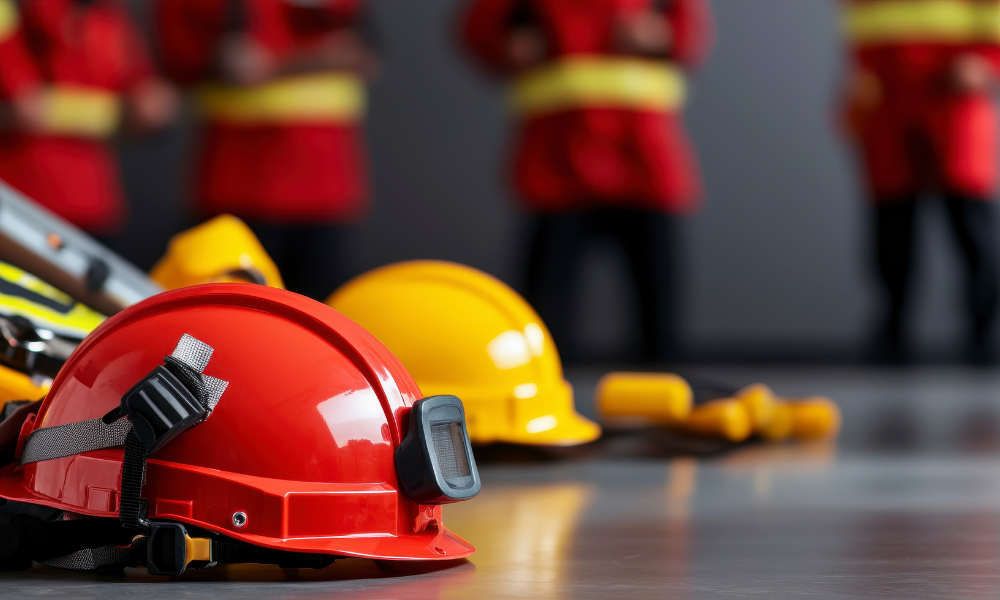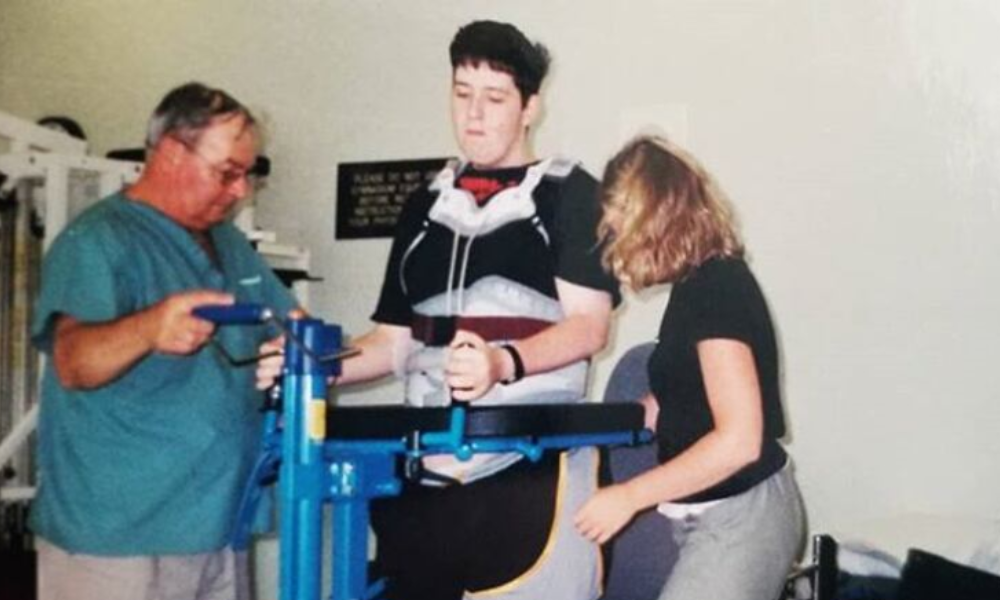Former fighter pilot on leading with courage
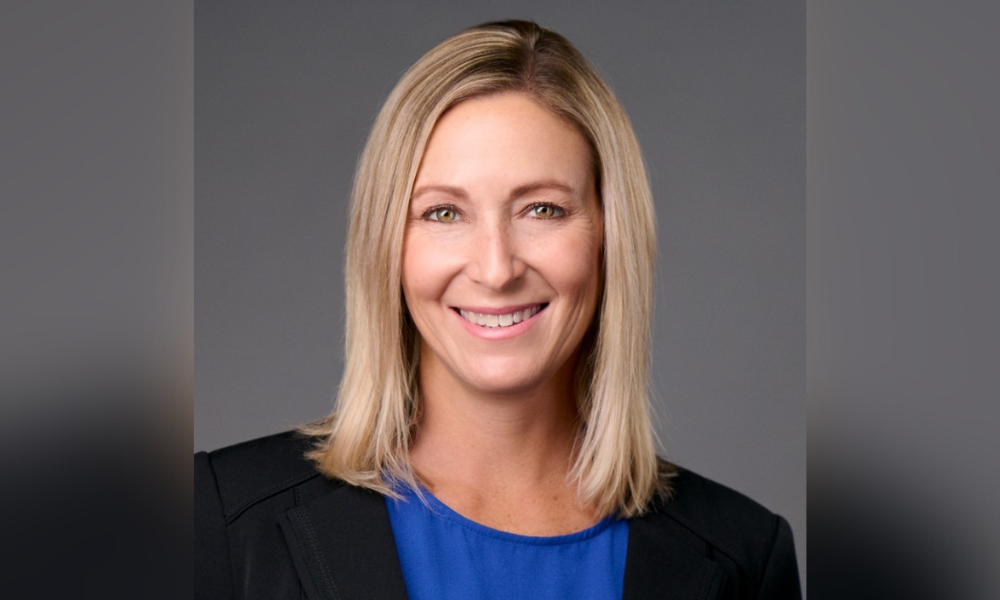
April 7, 2003, retired U.S. Air Force Colonel Kim “KC” Campbell is flying an A-10 warthog over Baghdad, Iraq as part of a close air support mission to assist troops on the ground, who are taking fire and need immediate assistance. “I felt and heard a huge explosion at the back of the airplane, and I had been hit by a surface-to-air missile,” says Campbell, recounting the experience.
She lost control of the plane, but kept composure, reverted to training procedures, and initiated the fighter jet’s emergency backup system. It started flying again, “that was kind of the first moment I was like, okay, I think I might actually get out of here alive.”
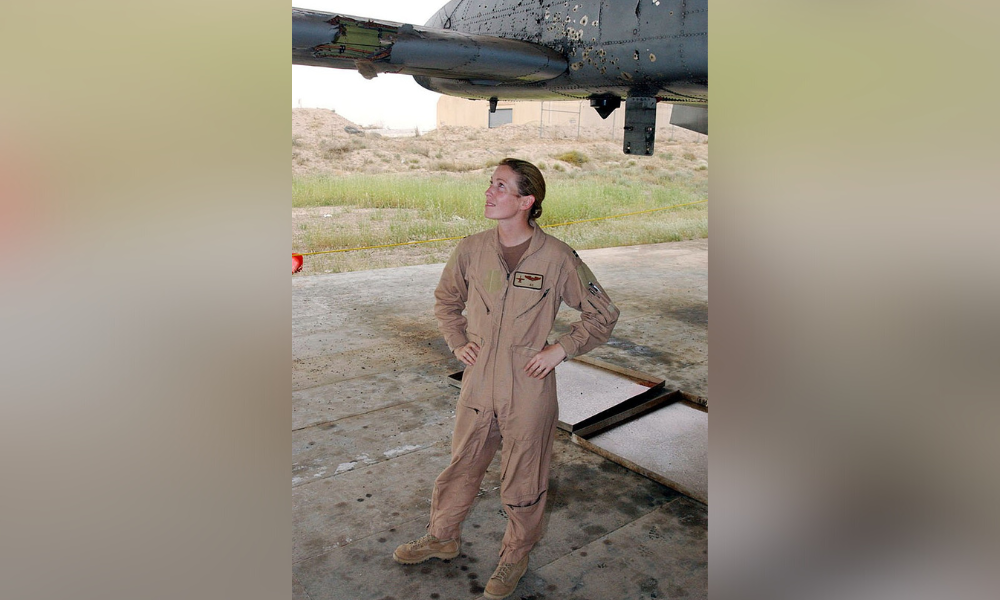
Campbell successfully landed the plane in friendly territory. But she didn’t do it alone. “Having that wingman by my side, as soon as I told him that my airplane was hit, he had the bigger picture, he had the situational awareness of what was going on around me.”
That partner guided Campbell as she made countless decisions about how and where to fly the plane, with the ever present threat that it could crash at any moment, or worse, come under attack again. “I wasn't alone, I didn't have to do this on my own, I had someone there to back me up. That was huge.”
That’s the inspiration behind Campbell’s new book, Flying in the Face of Fear: A Fighter Pilot’s Lessons on Leading with Courage.
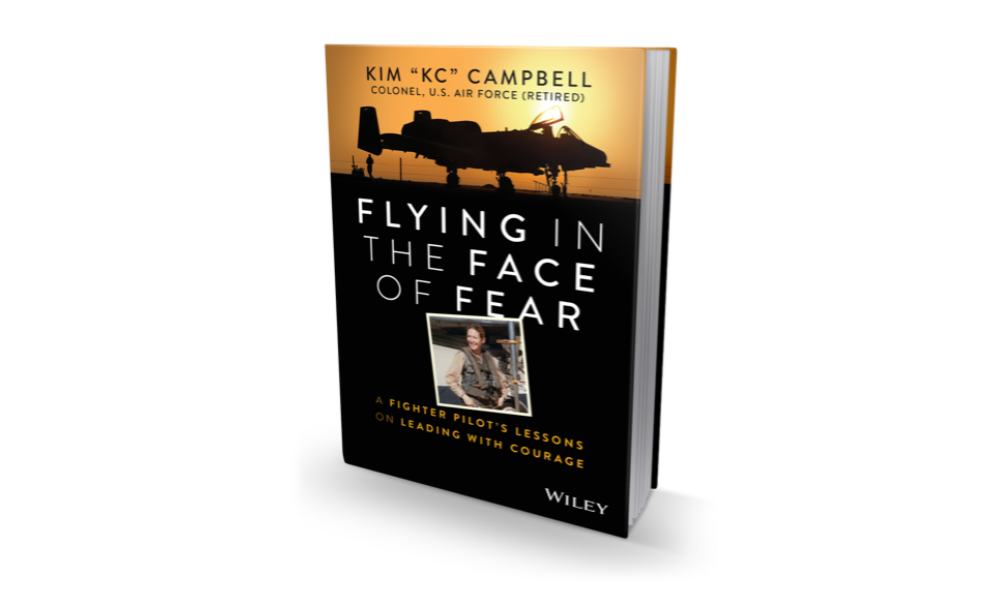
In the book, Campbell espouses the virtues of what she calls a “wingman culture.” She says leaders of all types, especially those responsible for the safety of others, can benefit from creating a culture of support.
Campbell says those high stress moments where things are going wrong, you’re feeling overwhelmed, and you know your actions will be scrutinized, are an opportunity to receive help from wingman. “That is absolutely critical to achieving success,” explains Campbell, who says the concept applies to any team oriented organization.
It’s a theory easy to express in words, and difficult to practice, because it means allowing yourself to be vulnerable. “It's creating this environment of trust, where people feel safe to provide feedback, to share their mistakes, to share their lessons learned…it takes courage to do that.”
Campbell calls it a growth mindset that puts the team ahead of the individual, to elevate every part of the organization. It’s more than just being a great coach, Campbell says it also means being willing to hold people accountable and ask tough questions about what might have gone wrong, and why. “It's really about creating the culture that ensures you have this environment where people can really thrive.”
Mistakes happen and everyone makes them. Campbell says it’s what we do with those mistakes that counts. “That starts with the leader,” according to Campbell, “that starts with somebody showing the team that it is okay to admit mistakes, it is okay to admit failures… we're going to learn from them.”
Many safety leaders have dealt with the worst mistakes. Those which lead to the end of a life. Campbell has been a witness to those too. She says even though they can be painful and often hit close to home, those lives can be honoured by the team.
“I look back at the fatalities and the losses we've had and some of them have been friends. And to know that the loss ended up with us learning in some way. We've learned from it, and we've grown from it. We've taken those lessons and we're doing it better so that we don't lose anybody else. That's the whole goal.”
And isn’t that always the goal? A wingman culture might be one way to achieve it.


